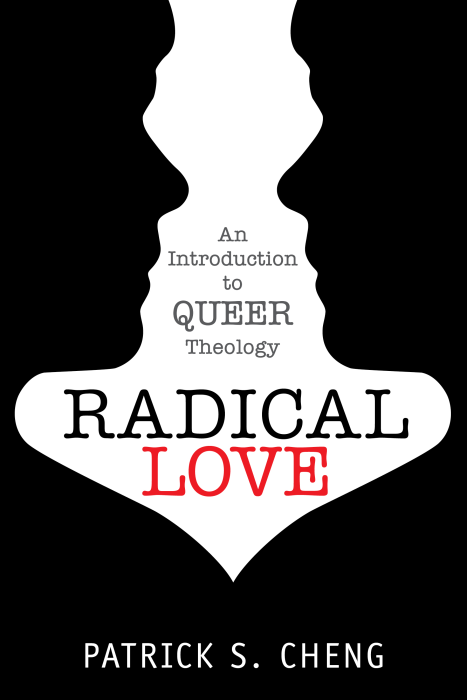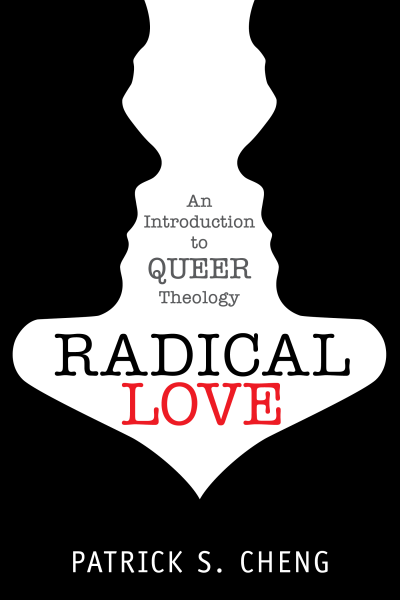Biblical Studies & Theology
Biography / Memoir
Church Supplies & Gifts
Curriculum & Faith Formation
En Español
Gender Studies / LGBTQ
Health and Wellness
Leadership
Liturgy & Worship
Prayer and Spirituality
Series
The Episcopal Church / Anglicanism
The Way of Love

Patrick S. Cheng
Church Publishing
Mar/2011, 160 Pages, Paperback, 6 x 9
ISBN: 9781596271326
The first introductory textbook on the subject of queer theology.
Contextual theologies have developed from a number of perspectives – including feminist theology, black theology, womanist theology, Latin American liberation theology, and Asian American theology – and a wide variety of academic and general introductions exist to examine each one. However, Radical Love is the first introductory textbook on the subject of queer theology.
In this lucid and compelling introduction, Cheng provides a historical survey of how queer theology has developed from the 1950s to today and then explicates the themes of queer theology using the ecumenical creeds as a general framework. Topics include revelation, God, Trinity, creation, Jesus Christ, atonement, sin, grace, Holy Spirit, church, sacraments, and last things, as seen through the lenses of LGBT theologians.
The Rev. Dr. Patrick S. Cheng is associate professor of historical and systematic theology at Episcopal Divinity School, Cambridge, MA. He holds degrees from Union Theological Seminary, Harvard Law School and Yale College. He is the author of the highly regarded books Radical Love: An Introduction to Queer Theology and From Sin to Amazing Grace: Discovering the Queer Christ, both from Seabury Books. He lives in New York City.
"Patrick Cheng's Radical Love is an excellent introduction to queer theology. It is readable and nuanced, a marvelous teaching resource."—Carter Heyward, author of Keep Your Courage: A Radical Christian Feminist Speaks and Professor Emerita of Theology, Episcopal Divinity School
"Patrick Cheng's Radical Love is not only an excellent introduction to LGBT theology but an important contribution to the discipline of theology and the life of the church. It is a must read for anyone who cares about the health of the church and theology today."—James H. Cone, Charles A. Briggs Distinguished Professor of Systematic Theology, Union Theological Seminary, New York, NY
"Thoroughly Christian and thoroughly Queer, Cheng helps readers welcome a theology that leaves no one behind."—Chris Glaser, author of As My Own Soul: The Blessing of Same-Gender Marriage and Coming Out as Sacrament
"This book is a clear, accessible and exciting analysis of Queer Theology. Cheng perfectly captures both the challenge and the rootedness of Queer Theology."—Professor Elizabeth Stuart, Pro Vice-Chancellor, University of Winchester, UK
"I would characterize Cheng's notion of 'radical love' as 'wild grace' with which mainstream theology has yet to wrestle. This is a good text for introducing queer theology to undergraduate and graduate students."—Rev. Dr. Bob Shore-Goss, Senior Pastor/Theologian, Metropolitan Community Church in the Valley, North Hollywood, CA
"Radical Love - a love so extreme that it dissolves our existing boundaries! What concept could be more liberating for a culture like ours, where lives are crucified on rigid binaries like male vs. female, us vs. them, straight vs. queer? Radical Love is an excellent introduction for beginners and an excellent synthesis for more advanced readers."—Virginia Ramey Mollenkott, author of Sensuous Spirituality and Omnigender, among many other books
"Cheng's work provides an accessible if somewhat rushed glimpse into how queer theology works; its main benefit is the extensive bibliography for those wanting more."—Publisher's Weekly
—Publishers Weekly
